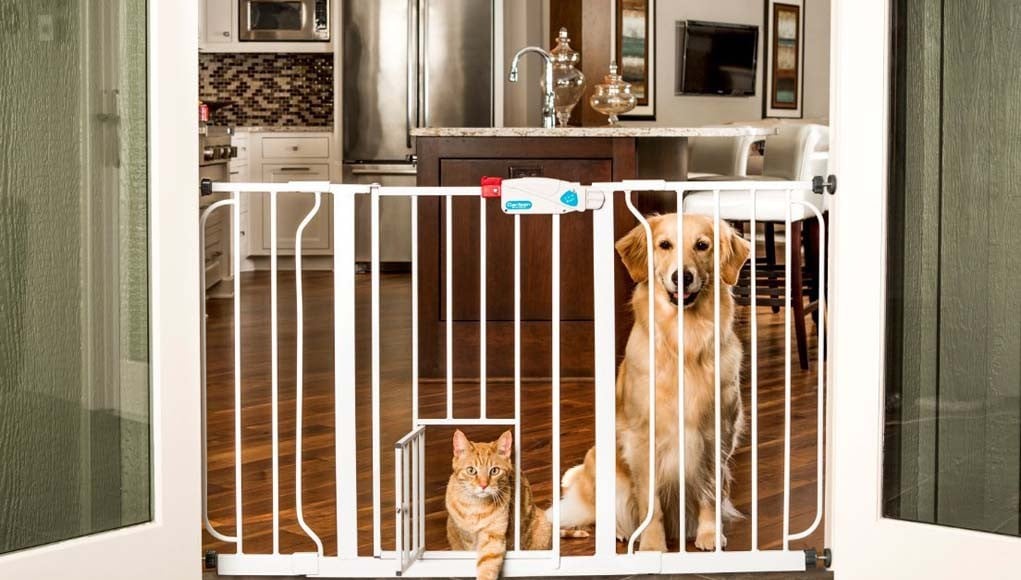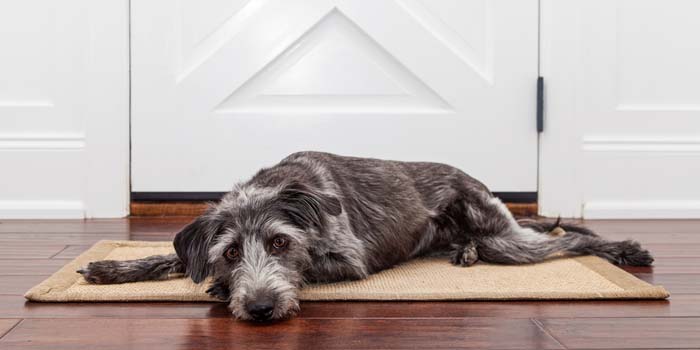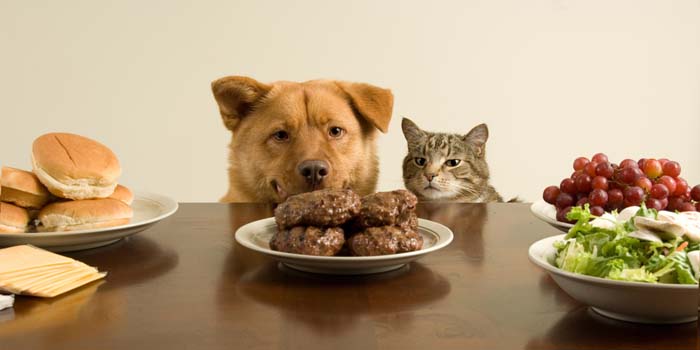Dogs, it goes without saying, can be pretty rambunctious. They’re always running around and being happy, fun, and crazy. My Australian Shepherd, Walter, is a perfect example of that. He’s always overly-hyped up and excited. Just watching cartoons with us makes him excited. Seeing a squirrel sends him into fits of hyperactivity. With him constantly misbehaving, there was no other way but to get a dog safety gate for our home.
We chose to get a pet safety gate for Walter because of his inability to respect boundaries that he wasn’t supposed to enter (places where we were cooking, bathrooms, closets and so forth). I didn't believe that it will help, but these dog safety gates have actually stopped my Walter from disrespecting the space and pretty much doing whatever he wanted to, while at the same time protecting my canine from a disaster.
Below I'll discuss 15 reasons to consider pet safety gates for your dog so you can decide if your pooch sounds like a Walter and may need to have an extra precaution.
[optin-monster-shortcode id=”mmevqhqfl46p1is5″]
What's a dog safety gate?
Pet safety gates are barriers that prevent your dog from entry into another room. They tend to be made of a sturdy wood, metal, or plastic and can stretch lengths of up to twelve feet or more. They’re designed to keep your dog away from anything that could harm him or her.
RELATED: How to Choose Dog Gates and Playpens for Dogs
When choosing a dog safety gate, make sure that you have an accurate read on your dog’s size and jumping capabilities. If your dog can easily jump a 20-inch high barrier, make sure that the pet safety gate you purchase is not within that range; otherwise, it will be pointless.
Also, if your dog is bigger, you will need to make sure that the gate is made for large-sized dogs and prevents them from knocking it over or bullying their way through. The construction of the dog gate needs to be chew-proof. I suggest measuring the entryway(s) that you need to block off before going and purchasing a pet gate. That way, you won’t get the wrong gate and find out, disappointingly, that your gate isn’t big enough.
So how are pet parents supposed to know whether they need a dog safety gate at home or not? I wouldn't say they are ever necessary; however, they can be a huge help, especially if you have a big house with places where you do not wish your Fido to enter. We've talked a little about this before, but here are 15 reasons to consider them.
15 Reasons to Consider Dog Safety Gates for Your House or Apartment
Firstly, if your dog is like my Walter and is hyperactive or just wild in general, a pet safety gate might be a great idea if your house has areas where it is impossible to dog-proof.
RELATED: Playtime Protectors – Dog Playpens or Pet Gates?
If you cook a lot at home and use the stove-top or oven, you don’t want your dog in there investigating and poking around. That can be a recipe for a disaster. Dogs don’t mean to, but every dog owner has been accidentally tripped by his or her pet. Now, picture if you were carrying a pan full of hot oil—yikes!
Below is a good video from Pet Poison Helpline explaining about the dangers of kitchen to our dogs, and how we can puppy-proof our cooking stations at home.
“It’s amazing (yet scary) how many common food items in our kitchen are poisonous to our pets! Some of these food items, while safe to you, may cause serious problems if ingested by our dogs and cats.“
Another reason to consider a pet safety gate for the house is if you have small children at home. Dogs and babies usually are a great mix, but both babies and dogs also get into stuff that they shouldn’t. Sometimes, it’s best to keep the two of them separated if you’re not watching them.
RELATED: Best Dog Cameras for Pet Monitoring
Dogs also might be unintentionally rough with kids—they think they’re playing, but actually get a little too wild and can hurt the baby, especially if he or she is a newborn and the dog is a puppy. Additionally, you can use those same gates for your kids, too. Some of those gates can be turned into playpens to isolate “small people” or pets from the dangers of the house. We have a list of ten best dog gates for indoors, if you'd like to take a look below.
RELATED: Top 10 Best Dog Gates for Indoors
Along that same vein, if you have a crib in your house, you might want to keep your dog away from it. Dogs are nosy and might risk climbing to the crib or knocking it over if they’re big enough. You want to prevent that from happening.
No matter how much we try to stop our canines from doing this, but if your dog drinks out of the toilet like my Walter occasionally does for whatever reason, you may want to curb that behavior by blockading off the bathroom from the dog. If you can step over the gate, you can get in the bathroom, but if your dog can’t, then you won’t have to worry about them misbehaving.
Even though toilet water isn't as dangerous to dogs as we used to think, some pet parents would like to keep their dogs away from the place just in case there is something to worry about. Yes, the bacteria isn't the primary suspect in toilet water. It's the cleaning agents we use to remove those bacterial counts (bleach, toilet cleaner, Lysol) that can be harmful to pets.
RELATED: Let’s Talk About Hazards for Dogs
All the chemical substances we use to clean our bathrooms leave residues in the basin that, while very hygienic, can do some serious damage to your dog’s internal organs. Also, if you have a puppy, he or she could fall in and potentially drown or hurt themselves. Some puppies, especially those of tiny breeds, are very, very small. What might seem like not a lot of water to us is a veritable ocean for them.
After all, ASPCA does warn pet owners about the dangers that creep up on our dogs when they go into our bathrooms for a quick drink:
“Bacterial-related gastrointestinal problems could occur from drinking stagnant toilet water, so it is a good idea to discourage your dog from imbibing from the commode.“
Another reason to consider a dog gate for your pet's safety is if your Fido is bad with strangers. You shouldn’t have to put get-togethers on hold because your canine isn’t comfortable around people he or she doesn’t know. Bullmastiffs, Doberman Pinschers, Schnauzers, German Shepherds, Pitbulls, and other dog breeds can be very protective over you.
Being protective of their owner is not necessarily a bad thing, but often those dogs get a bad rap. Sometimes, it’s best to just keep your pets away from strangers until they’re socialized to be friendly and less on-guard (not everyone is comfortable around dogs).
RELATED: Dog Anxiety Problems and Treatments
A pet gate should also be considered if your dog has separation anxiety. A dog with a serious case of separation anxiety is going to try to tail you wherever you go; they miss you and are sad. To curb that behavior and start getting them used to being by themselves, sad as that may be, is important for your dog’s psychological health. A pet safety gate will keep them in one area and force them to become more adjusted to being away from you for short periods of time.
If you aren’t home often and are gone throughout the day, a dog safety gate is a good idea because you won’t have to worry about what your dog is getting up to. Even if your dog is in his own dog crate, you should use the pet safety gate as a backup on the off-chance that your Fido chews his or her way out of the dog crate and starts roaming around the house.
You can always allow your pooch to have some leg room without fearing that they’ll get into danger or trouble. For some dog owners, the thought of crating their canine doesn’t sit well with them, but they also want to make sure that he or she is kept safe. Pet safety gates provide a nice balance between the two.
Our editor Samantha has even written some news piece about new dog companies emphasizing the importance of containing your dog inside the house with a dog gate:
- Conveniently Keep Your Dog Out of Unwanted Areas With the Magic Gate
- Puppy Bumpers Keep Your Dog From Sliding Through a Gate or Fence
- A Fence Extension System Helps Stop Dog Jumpers and Climbers
If you store chemicals in your house, which we all do, or just in general have things that could cause a dog some potential health issues, consider a pet safety gate to blockade that room off. My family, for example, keeps cleaning products and sanitizers in the laundry room in a cabinet below the sink in there.
So does that mean we think Walter could figure out how to open the cabinet? Realistically, no. But we just want to be safe in case through our own fault we leave stuff on the floor, or spill a chemical and forget about it. After all, our canine is a part of our family, and we wouldn't risk letting a child into a room full of chemicals, even if we thought that he or she could never reach them.
If you have a dog that is prone to gaining weight or has severe food allergies, a pet safety gate should be considered in order to barricade the kitchen from them. You don’t want your dogs getting into the stash of human food or ingesting something that could make them sicker and/or fatter and damaging their health.
RELATED: When Dog Fences Are Absolutely Necessary
Lastly, if you just have a dog that is curious and investigative, a dog safety gate is a good way not to stifle their personality by locking them up. Pet safety gates simply provide extra security for a dog that likes to stick his nose into the house’s business.
So in conclusion, do I think that dog gates for our pet's safety are absolutely necessary? No, they're not. We can all get by easily without using them. However, in some particular cases, seeing how we as people can occasionally get pretty lazy, having a dog gate or even a dog playpen around can be a life-saver, in my opinion.
Featured photo courtesy of Carlson

















